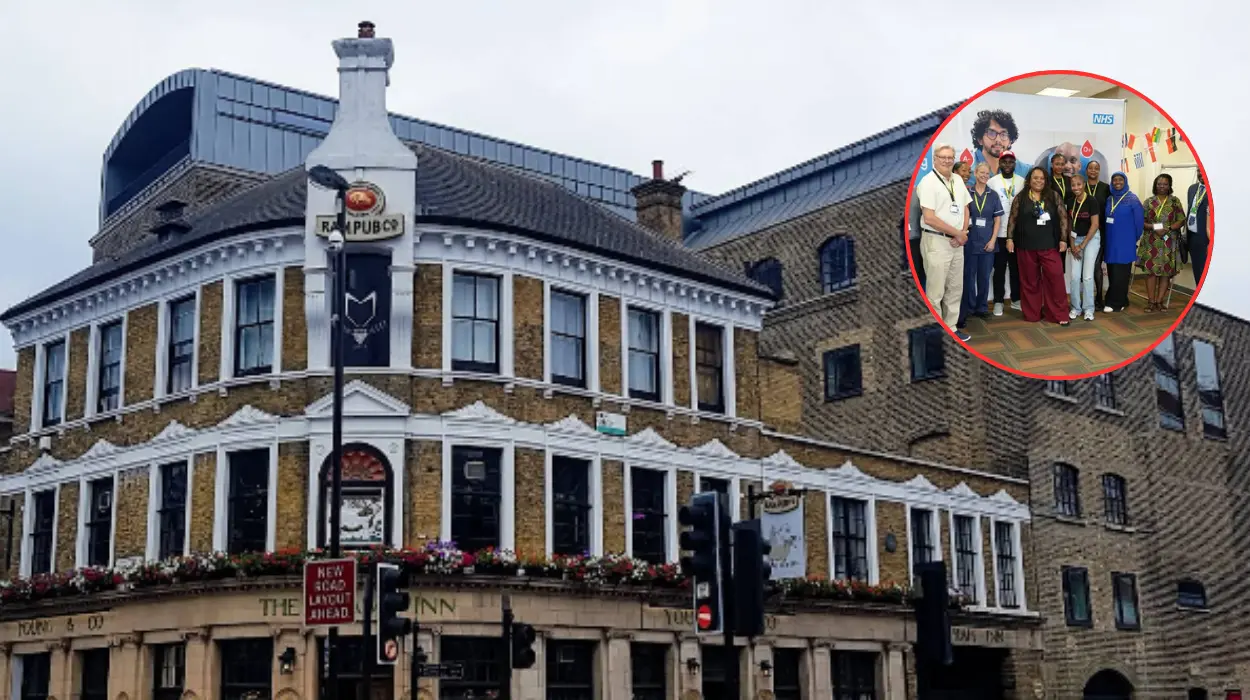Wandsworth (Parliament Politics Magazine) – Wandsworth Council hosted a compelling awareness event to mark World Sickle Cell Day, aiming to spotlight the condition and promote better public understanding.
They held an educational Sickle Cell Awareness Panel Event for staff members in honor of World Sickle Cell Day today (June 19), raising awareness of one of the genetic disorders with the fastest rate of growth in the UK.
This event was organized in collaboration with the NHS.
Together with NHS experts and those who have lived with sickle cell disease, the event featured a strong lineup of perspectives, including Sheila Nortley, a former Graveney student and co-producer of the Netflix series Supacell, which explores sickle cell.
Georgia Adebowale, Patient Engagement Coordinator at West London HCC, Michaela Mayhew, Lead Nurse for Inherited Blood Disorders at St George’s, and Patrish Zea, South West London Lead Mentor for the Sickle Cell Society, spoke to the guests.
Two Sickle Cell Warriors, Aliya and Marsha, provided guests with a deeper understanding of what it’s like to live with the illness on a daily basis.
An honest and sincere conversation on how communities and the council can do more to listen and support was sparked by their thoughts on the need for increased awareness, compassion, and structural support.
In addition to enjoying nutritious refreshments, attendees discussed practical steps they could take, such as the ability to easily and painlessly determine their blood type on the day.
Employees were better equipped to address health disparities and provide support to sickle cell patients after learning more about sickle cell disease and how it impacts those who live with it on a daily basis.
“This condition disproportionately affects Black African and Caribbean communities,” he said.
“We must do more to educate ourselves, to listen to those living with it, and to ensure our borough is a place of understanding, equity and compassion.”
One of the most prevalent hereditary diseases in the UK, sickle cell disorder affects between 12,500 and 17,000 persons nationwide.
At St George’s Hospital, nearly 700 adults and children are presently being treated for the disease.
People of Black African and Caribbean descent are the majority affected by the condition, and many patients need frequent blood transfusions to control excruciating symptoms and avoid potentially fatal consequences.
Blood supplies are still extremely low, nevertheless, particularly for important blood types from underrepresented groups.
World Sickle Cell Day is a significant chance to spread knowledge and inspire blood donation, which could save lives.
How does the awareness event aim to change perceptions of sickle cell in the community?
Through public education, stigma reduction, and increased awareness of the condition’s effects, the Wandsworth awareness event seeks to alter the community’s perceptions about sickle cell disease (SCD).
It humanizes the experiences of sickle cell disease patients through personal narratives and community involvement, assisting in the debunking of myths like the idea that SCD is a benign ailment or that it only affects individuals of African origin.
The event promotes empathy and support by bringing attention to the difficulties faced by sickle cell patients, such as the need for well-matched blood donations and improved medical care.
It also emphasizes the value of providing patients with informed healthcare, addressing problems that many patients have, such as incorrect diagnoses and insufficient pain management.


